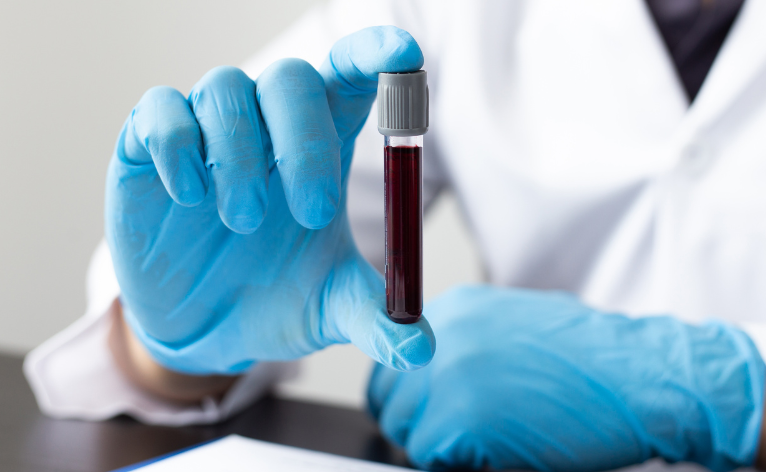News release
From:
Five-year data supports liquid biopsies to guide colon cancer treatment
Updated results of an Australian trial which used liquid biopsies to guide colon cancer treatment has confirmed no compromise in outcomes despite these ctDNA blood tests allowing many patients to avoid chemotherapy.
The DYNAMIC trial involved 455 patients who had surgery to remove their colon cancer. Patients were then randomised to have their need for follow-up chemotherapy determined by a liquid biopsy or by their doctor using standard criteria.
For patients, a liquid biopsy resembles a standard blood test and their blood sample is checked for any fragments of circulating tumour DNA (ctDNA) indicating there are still remaining cancer cells despite removal of the primary tumour.
Just 15% of patients who had liquid biopsy were determined to need follow-up chemotherapy because ctDNA was found, compared to 28% of patients who had chemotherapy after their doctor applied the standard criteria.
All patients have now been tracked for five years and updated results of the study have just published in Nature Medicine.
“Five years on, and despite the reduced use of chemotherapy in patients who had liquid biopsies, survival outcomes in both groups are virtually the same,” explains Professor Jeanne Tie, lead study investigator and Lower GI Medical Oncologist at Peter Mac and a senior research fellow at WEHI.
“This is further confirmation that ctDNA liquid biopsies are an appropriate way to guide treatment for these patients, noting this enables many to avoid chemotherapy and the potential toxicities and other health impacts this brings.”
Five-year overall survival was 93.8% in the ctDNA-guided group versus 93.3% for the standard management group, while recurrence-free survival (meaning no return of their cancer in those five years) was 88% versus 87% respectively.
There were also indications that additional liquid biopsy testing at the conclusion of a patient’s treatment could provide insights into how well their treatment had worked, and the patient’s long-term risk of cancer returning.
The paper is titled “Circulating tumor DNA analysis guiding adjuvant therapy in stage II colon cancer: 5-year outcomes of the randomized DYNAMIC trial”.
This study was sponsored by WEHI and had support from the National Health and Medical Research Council and other funding bodies.
About Peter Mac
Peter MacCallum Cancer Centre is a world leading cancer research, education and treatment centre and Australia’s only public health service dedicated to caring for people affected by cancer.



 Australia; NSW; VIC; WA
Australia; NSW; VIC; WA



